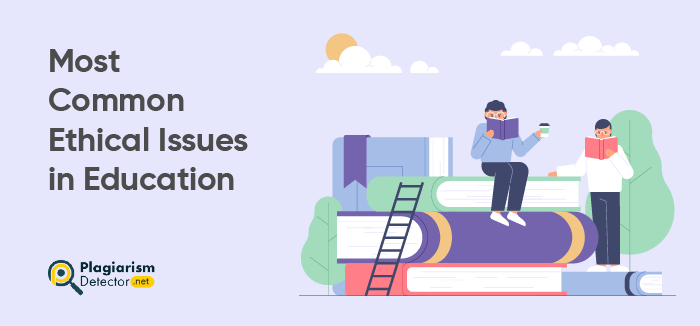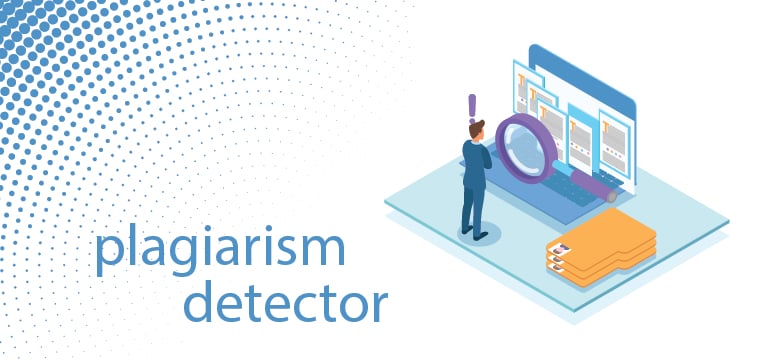What Are the Most Common Ethical Issues in Education?

Quality education is the key to success in this competitive world and imparting it is a novel pursuit. However, there are many challenges and ethical issues associated with education that we all need to think of and ponder from time to time to ensure the quality of education and the values added to society through it.
While talking about ethical issues, there are a number of moral problems in education that must be addressed and fixed. These ethical issues aren’t related to students only, as they affect teachers equally. The primary reason for these issues is their direct involvement. We often avoid talking about these moral issues in education. But, it is essential to discuss them to find out possible solutions.
Are you aware of the most common ethical dilemmas in education? If not, then this blog post is mainly for you. In this article, we will discuss a few prominent ethical issues in education comprehensively. So, keep reading to learn more about them.
The Mostly Observed Ethical Issues in Education
The most-observed ethical issues in the education sector are explained below.
Social Inequity
This is one of the most common ethical issues faced in the educational sector. Most schools and colleges don’t address this issue properly, which makes it more common and severe. Social inequality arises between different children due to their economic, ethnic, and other family backgrounds.
It has been observed that people coming from poor backgrounds, who may have inappropriate food or lesser time to be active kids at home, usually face more challenges as compared to a student who comes from richer backgrounds. Mostly, the educational institute’s administration blames the children for poor academic performance instead of offering them the required assistance in a better way.
Cheating
Cheating has been a common and widely spread problem in academics. Certainly, it is quite challenging for schools and colleges to tackle this severe issue adequately. The immense advancement in technology has also enhanced the instances of cheating in the educational sector. Nowadays, students have easy access to facilities that enable them to complete their assignments without making any effort.
For instance, uninterrupted access to online resources allows them to duplicate any text in their work and present it as their own creation. The advent of AI tools has made things easier for them as they can generate content relevant to their assigned task using these tools. This certainly makes things harder for teachers.
But, there are a few useful practices that they can perform to minimize these issues. For taking the assistance of an advanced plagiarism checker gives a helping hand to teachers to check for the genuineness of the content. This practice should be performed by teachers from all schools and colleges before grading students’ work.
Social Diversity
In today’s world, where students from different parts of the planet come together to get a quality education, it becomes essential for schools and colleges to ensure social equality in what is offered. It is their responsibility to take the required steps to make students from ethnic minorities and backgrounds feel comfortable.
The easiest, but a more practical approach that schools and colleges can adopt is organizing multicultural festivals to make these students feel involved. The aim to provide ethnic quality shouldn’t remain words only and must not be used as a blanket statement. There is a strong need to take appropriate measures to counter social and ethical inequity that is becoming a serious ethical issue in educational institutions.
Special Treatment
Many students often become victims of special treatment in their schools and colleges. It has been observed that many teachers often grade students on the basis of their liking and disliking. Similarly, many principals treat some students in a better way than the rest of the students to make sure their parents keep donating. This also happens in athletes’ cases, where teachers award them with good grades to ensure they keep playing for their teams. This issue has also increased in educational institutes in the last few years.
The clear violation of discipline policies is a major reason for these ethical issues. Another severe issue that is observed in the educational sector is the blunt use of a no-tolerance policy. Giving harsh punishments to students they don’t like for minor mistakes is a clear example of it. There is no doubt that the teacher should be employed to use these powers in complicated situations. However, a zero-tolerance policy should only be followed when it comes to severe issues. Giving second chances to students will definitely give them a chance to improve their performance and behavior.
Grading Exams
It becomes essential to reevaluate the methods to assess student learning to ensure better results. Exams and tests are certainly the most practiced methods to check students’ performance. But, these methods are not a practical way to judge how students are performing in academics. Many students often face issues or get nervous when sitting for exams. There are instances where bright students fail to perform well in exams because of anxiety and other similar concerns.
Therefore, making changes in the patterns of assessing students’ performance is essential. Modifying the teaching strategies, curriculum development, and assessments is a useful approach to assessing the quality of education offered to students. Else, it would appear as a critical ethical issue in education.
Bullying
It is one of the most common but severe ethical issues in many schools, colleges, and even universities in the entire world. No one can deny that many students face serious forms of bullying in educational institutes. This makes a serious impact on their mental health and academic performance.
Many educational institutes don’t take this offense seriously and overlook it even if they see it happening. A child who is a victim of this serious crime can inflict harm on themselves or even others. That’s why there is a strong necessity to take it seriously. Also, schools and colleges should have a zero-tolerance policy for bullying. It will surely help in reducing the instances of bullying in educational institutes.
Conclusion
We all must admit that there are a number of ethical issues in education existing in recent times. All educational institutes, whether it’s public or private centers, face these issues on a regular basis. It’s time for every school and college take serious steps to counter these issues and improve the quality of education among students ethically. The ethical issues we have shared are commonly observed in education. But, these issues can easily be handled with suggestions we have shared in this blog post.




